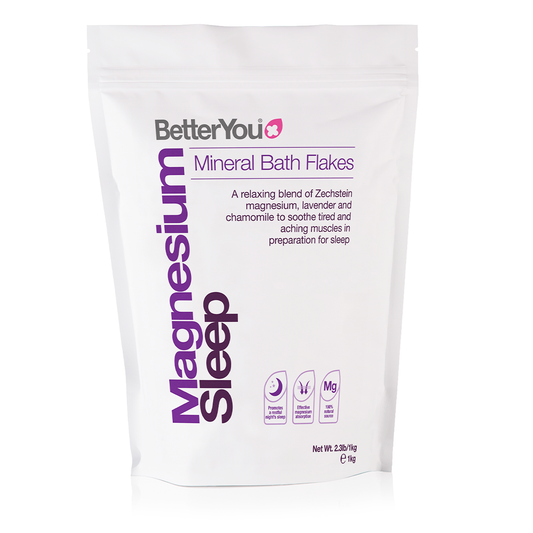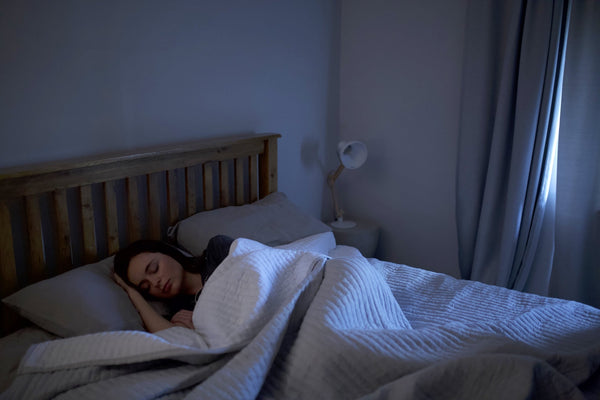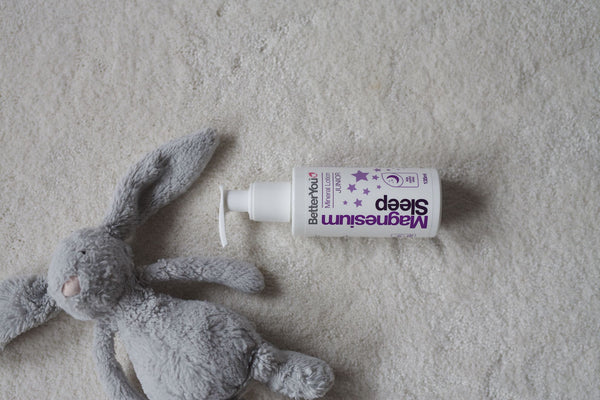Struggling to sleep has a huge impact on both physical and mental health. Sleep helps us to balance hormones, maintain a robust immune system and control sugar levels.
We look at the most common reasons people struggle to sleep, and how to work to fix them.
Stress and anxiety
When we are worried or anxious about our daily lives, cortisol levels increase, which can make it difficult for us to fall, or stay asleep.
Having difficulty sleeping can then cause additional strain, leading to a repetitive cycle. Sleep helps with cognitive function, allowing us to remember, learn and problem solve. Poor sleep means we are not as capable of putting worries into perspective and reduces our ability to solve problems.
Most adults require at least 7 hours of sleep each night for proper cognitive and behavioural function. If we do not achieve this, especially over an extended period, this can begin to affect our mental health.
How to fix it
Create a calming environment before bed to help you relax, ensuring the space is dark, quiet and cool in temperature. If you use your bedroom as a home office or study, then try packing away your computer at the end of the day to create that separation from work and rest.
Getting to the heart of the matter of why you’re worrying may help put things into perspective. Try journaling your thoughts before bed or when you can’t sleep, or discuss your worries with a friend.
If you are struggling to manage your stress or anxiety, then speak to your GP. They will be able to provide you with options to better manage your stress in the short and long term.
Inconsistent sleep schedule
While you may be tempted to stay up and watch that season-finale or have a lie-in on a weekend, inconsistent bed and wake times can disrupt your circadian rhythm - the natural, internal process that regulates the sleep-wake cycle.
With irregular sleep patterns, the body will no longer know when to naturally start producing the melatonin required for sleep, or when to inhibit melatonin production in preparation for waking up.
How to fix it
Going to bed consistently at the same time every night, and for the same length of time, will help your body get into a healthier sleep schedule. Ensuring you have a consistent bedtime and waketime will allow your body to fall into a pattern where you will naturally begin to feel tired as your body prepares for sleep.
It can be more difficult for those working shift patterns to maintain a consistent sleep schedule. However, there are still processes that you can put in place to help aid your sleep.
- Ensure the room is dark and quiet.
- Try using a sunrise alarm clock to help you wake. This will mimic natural sunlight to help wake you up.
- Avoid napping where possible.
Diet
Many people aren't aware that nutrition and sleep go hand in hand. What we eat and drink can directly affect our sleep, both positively and negatively.
When we’re tired, we tend to reach for snacks and drinks that will give us a quick release of energy, however, these quickly wear off and will put us back into that tired slump.
How to fix it
Firstly, cut down on caffeine and alcohol consumption close to bedtime. Caffeine is a stimulant, which can prevent you from falling asleep. While alcohol may help you fall asleep, it can stop you from reaching a deep level of sleep, which is required for complete rest and repair of your body.
Having a healthy balanced diet and consuming the right number of calories will help keep your sleep cycle healthy. It will also reduce the risk of obesity-related sleep issues, such as sleep apnoea.
Some great foods to eat that aid sleep are slow-release carbohydrates and protein, as these will help you feel fuller for longer, helping to keep any night-time cravings at bay. Also, try eating foods high in Tryptophan, an amino acid that aids the production of melatonin. This can be found in foods such as turkey, cheese, eggs and seeds.
Evening habits
There are certain habits that we do in an evening that can negatively impact our sleep, such as using blue light devices or exercising.
Exposure to blue light-emitting devices before bed can prolong our wake cycle and make it difficult for us to fall asleep by inhibiting the production of melatonin.
Exercising intensely too late in the evening can also impact our sleep schedule. While exercising regularly is encouraged to maintain good health, intense exercise close to bedtime slows down the natural increase of melatonin within our bodies, meaning that we fall asleep later.
How to fix it
Try switching the TV off and putting down your phone at least 30 minutes before bed. Opting instead to read before bed in a dimly lit room will help the body to wind down and adjust to sleep mode.
Exercise in the morning or stick to light exercise on an evening to ensure your body is prepared for sleep.
Aches and pains
Sore muscles and aching joints can keep you up at night, tossing and turning trying to get comfortable.
General aches and pains can not only affect your ability to get to sleep but also your ability to stay asleep and your quality of sleep. However, it's during deep sleep that our bodies repair, so it's imperative to prioritise restorative rest if you have sustained an injury.
How to fix it
If you suffer from general aches and pains, then some light exercise will help ease muscle tension. Try some gentle stretches before bed to help relieve any tension as well as a warm bath or shower.
Try using magnesium as part of your bedtime routine. Magnesium is a natural muscle relaxant that can ease tension and help you sleep. Apply transdermal magnesium to problem areas 30 minutes before bed to ensure muscles are relaxed and ready for sleep.
For those that are suffering from chronic pain or neuropathy, always seek medical advice.
Better Sleep, BetterYou
There are many reasons people struggle to sleep, if you're struggling to get a good night's rest then why not try our range of Sleep supplements. Specially formulated to support restful sleep.




















